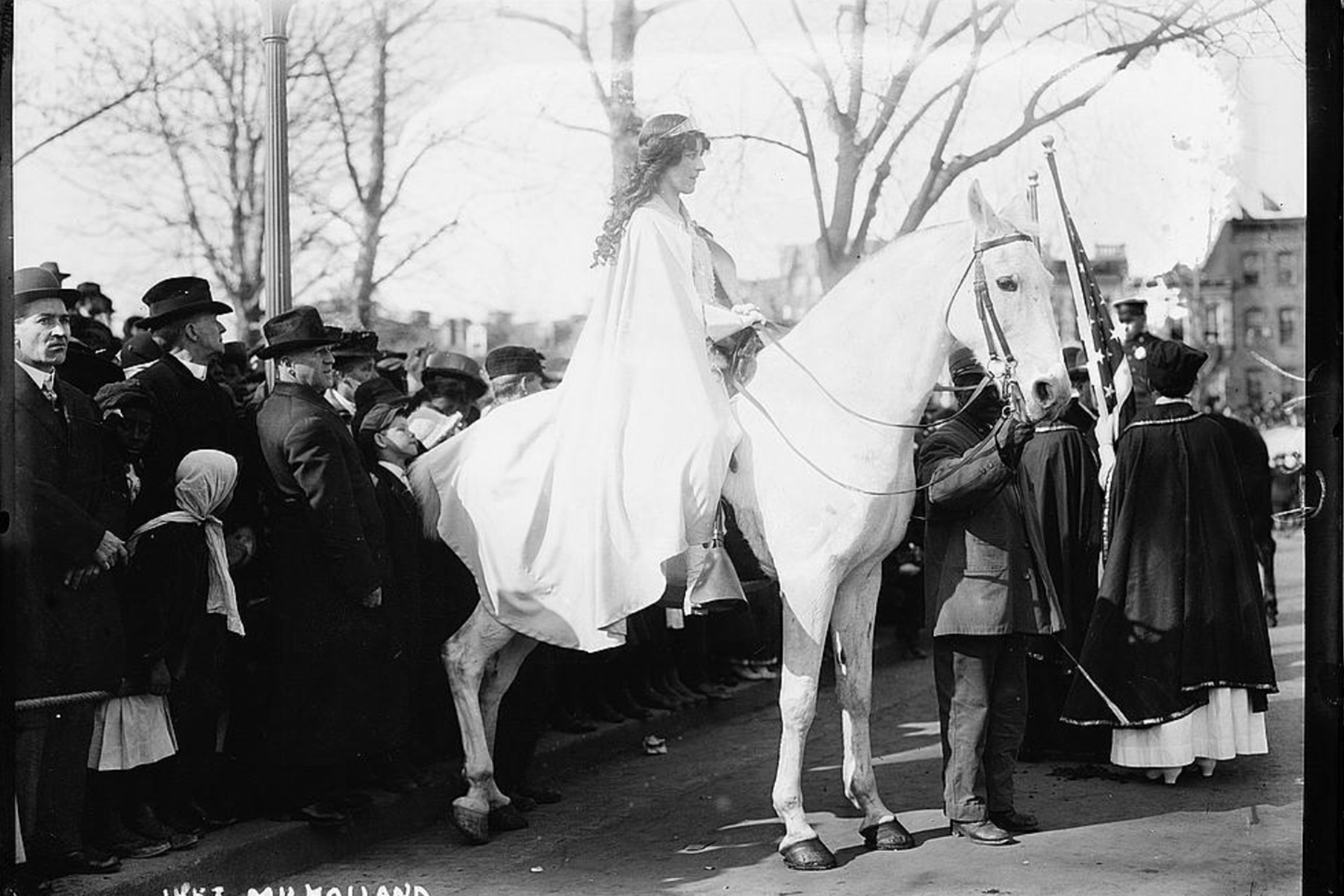
There have been numerous events and programs around Wisconsin celebrating the 100th anniversary of the ratification of the 19th amendment, which took place on June 10th, 1919. Wisconsin has the distinction of being the first state to ratify the amendment and give women the right to vote. The fact that Illinois was actually ahead of us but didn’t fill out their paperwork accurately and we did, is a little fact we will choose to ignore.
There have been numerous events and programs around Wisconsin celebrating the 100th anniversary of the ratification of the 19th amendment, which took place on June 10th, 1919. Wisconsin has the distinction of being the first state to ratify the amendment and give women the right to vote. The fact that Illinois was actually ahead of us but didn’t fill out their paperwork accurately and we did, is a little fact we will choose to ignore.
Commonly known as suffragists, a suffragist is someone who advocated for extending political suffrage — the right to vote in elections — for women during the late nineteenth and early twentieth centuries. Because in the U.S. the individual states determined who can vote, so it took a federal amendment to express this right.
Suffragists had their detractors, including many high society women, who along with many men referred to them in a derogatory way as Suffragettes. Our whitewashed American history lesson in school gave the impression that women wanted to vote, they had a protest lead by Susan B. Anthony and they were given the right to vote. In reality, the struggle to ratify the 19th amendment took 73 years of protests, hunger strikes, imprisonment, solitary confinement and non-stop grassroots organizing. Suffragist heroes Elizabeth Cady Stanton and Susan B. Anthony controlled the narrative of the movement and still govern common understanding. Needless to say, many of those who were part of the movement never lived to witness the day women would finally be able to vote in America.
What has often been left out of history books is the critical role that Black women played in the movement, they added to the critical mass needed to move forward and they toiled and sacrificed as well. While glory has been showered on the Anthony-Stanton cohort, black women were rendered invisible. In addition, the deep racism against black women in the movement itself has been left out of history books and films until very recently.
As the Suffrage movement was gaining momentum in the United States, Suffrage movements were taking place around the world, particularly in Great Britain. Many Muslim countries were still under colonialist rule, but they established universal suffrage immediately when they gained national independence, these included Muslim majority countries such as Bangladesh, Indonesia and Malaysia. In most North African countries, women participated in the first national elections or soon following.
Interestingly, in Islamic history the first group to lead a political campaign, were Muslim women who gave their allegiance to the Prophet Muhammad as their leader. Regression on the part of some Muslim countries can be attributed to many factors, including the imposition of non-democratic tyrants in positions of power. Many are the remnants of colonialist rule.
Saudi Arabia has the dubious distinction of having allowed women the right to vote very recently. Though many question the purpose of voting in countries where the monarchy or dictatorship remains untouched.
There are many lessons to be learned from the movement to ratify the 19th amendment. Namely that change comes slowly and with great sacrifice. Many may never see the fruits of their labor but it is imperative for the next generation to carry on the work for justice. It is crucial that those who work for justice make sure it includes everyone, not just those who look and think like them. Success comes when many people and groups work together, that’s what creates a movement.
© Photo
Inez Milholland Boissevain, wearing white cape, seated on white horse at the National American Woman Suffrage Association parade, March 3, 1913, Washington, D.C. from the Library of Congress
Written By:
Janan Najeeb









